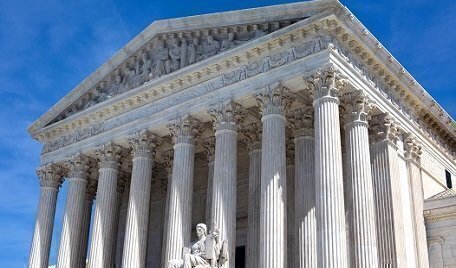A divided Supreme Court on Monday turned down an attempt by two states to deny efforts to fund Planned Parenthood.
 The majority of Justices who denied the appeals in Anderson v. Planned Parenthood and Gee v. Planned Parenthood didn’t comment on the decision. Four Justices must vote to accept a case for arguments and three Justices objected to the majority’s denial in the cases.
The majority of Justices who denied the appeals in Anderson v. Planned Parenthood and Gee v. Planned Parenthood didn’t comment on the decision. Four Justices must vote to accept a case for arguments and three Justices objected to the majority’s denial in the cases.
In his dissent, Justice Clarence Thomas said the Court was avoiding the issue at the heart of the matter, lawsuit rights, because of a possible association with abortion rights. Justices Samuel Alito and Neil Gorsuch joined Thomas’ opinion.
“So what explains the Court’s refusal to do its job here? I suspect it has something to do with the fact that some respondents in these cases are named ‘Planned Parenthood.’ That makes the Court’s decision particularly troubling, as the question presented has nothing to do with abortion,” Thomas argued.
While Thomas acknowledged that the lawsuits emerged in an environment where several states alleged Planned Parenthood took part in “the illegal sale of fetal organs” and “fraudulent billing practices,” those claims weren’t related to the core constitutional question in the cases.
“These cases are not about abortion rights. They are about private rights of action under the Medicaid Act,” Thomas said. “It concerns only the rights of individual Medicaid patients to bring their own suits.”
Without stating the obvious, Thomas was alluding to the decisions of Chief Justice John Roberts and the Court’s newest Justice, Brett Kavanaugh, to reject the case.
Kansas and Louisiana were seeking to eliminate Medicaid funding for non-abortion services at Planned Parenthood locations in their states after news emerged about the controversial videos. Congress has already directed that federal funds can’t be used to fund abortions through Planned Parenthood.
The two states were arguing that they had the ability to determine if a provider such as Planned Parenthood was “qualified” under the Medicaid Act and the states also had broad powers to exclude unqualified providers. In addition, the states contested the rights to individuals to challenge such decisions unless Congress explicitly permitted such actions.
Planned Parenthood denied the videos showed wrongdoing and argued that the videos were part of the two states’ decisions to defund Planned Parenthood affiliates in Louisiana and Kansas. Under Medicaid’s free-choice-of-provider provisions, Planned Parenthood said people eligible for Medicaid had a right to use its facilities for health services. Two federal appeals courts ruled in favor of Planned Parenthood in the Kansas and Louisiana cases.
Scott Bomboy is editor in chief of the National Constitution Center.






